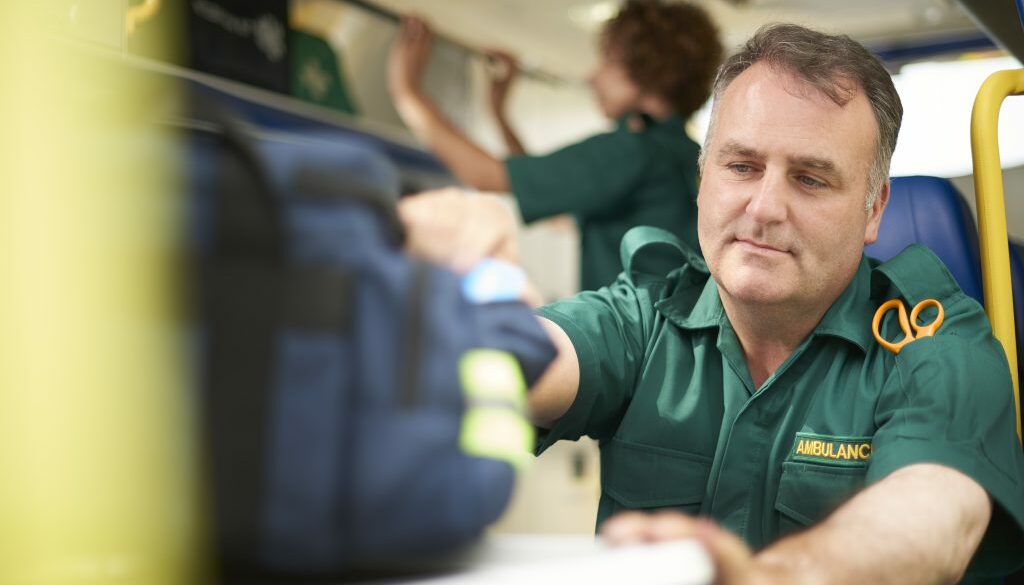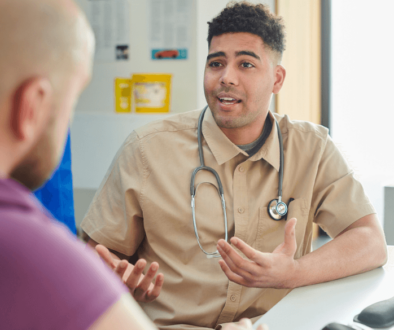Paramedics and their role in Hospitals
The role of paramedics in hospitals is a critical one. Here, we will give you an in-depth look at the fascinating role of a paramedic in hospitals.
Paramedics – The Technical Side
Paramedics are most well-known for providing immediate and emergency care in response to 999 calls. They are educated and trained to make decisions in high-pressure situations in unfamiliar and unpredictable environments. The College of Paramedics defines the role as someone who ‘works autonomously as a generalist clinician across a range of healthcare settings, usually in emergency, primary or urgent care. Also, paramedics may specialise in clinical practice, education, leadership, or research’ (2019).
Working in both emergency and non-emergency using their skills to quickly assess a patient’s condition to make potentially lifesaving decisions. Paramedics are not EMT’s although many EMT’s go onto become paramedics, as have a lot more training and can provide more advanced emergency medical care.
There are several routes a paramedic might take to qualify including:
- A full-time approved qualification in paramedic science and then apply for a paramedic role
- Apply for a student paramedic role and study while working
- Apply for a degree standard apprenticeship in paramedic science with the ambulance service
To qualify as a paramedic, you will need to successfully complete an approved degree in paramedic science, an apprenticeship degree or similar. This can take up to 4 years if you are studying full time and will include a mix of theory and practical work – it is estimated that you will need at least 1,200 hours of training to become a paramedic.
It may seem like a lot of work, but it is necessary when you are being trained to make life-saving decisions.
What do Paramedics do?
While paramedics mainly work in emergency rooms and ambulances to treat people with urgent problems, they can also work in specific settings where help may be required including:
- Firefighting teams
- Oil drilling platforms
- Ocean rescue
- Large scale events i.e., music festivals
- Cruise ships
- Air rescue
- On S.W.A.T teams
Paramedics work in teams and will respond to any type of medical emergency and will work under the supervision of a doctor (even when the doctor is not on site). Paramedics do have the qualifications to make some decisions about patient care, especially when it is life threatening and when they are on call paramedics may have to:
- Use a defibrillator
- Perform CPR
- Give IV medication
- Clear airways
- Do basal medical tests
- Use mechanical breathing devices
- Give someone a tracheotomy
- Interpret test results
- Give antidotes to drug overdoses
- Interpret the results of a test
- Provide a detailed account of the person’s condition to a doctor upon arrival
A paramedic will be the senior member of a two-person team with an emergency care assistant or technician there to support you. They work closely with the police, fire and rescue service and other healthcare professionals to help support the patient, relatives, and members of the public in highly emotive situations. Often the point of calm in storm as they are skilled at consultation skills. History taking, examination and judgement in diagnosis to give the doctor as much information as possible when the patient gets to hospital. They have one of the widest ranges of patients than any other NHS role and will have to work with illness and injuries ranging from new-born babies right through to the elderly – and everyone in between.
Find your next GP position with Key Medical Services
If you are about to qualify as a new GP and enter the world of work in healthcare, our team of specialist consultants would be happy to guide you in this time. From offering career advice to providing support with sourcing assignments, they’ll be sure to help you find the best opportunities to suit you and align with your long-term goals. They will also help you to get your compliance levels up to 100% so that you never miss an opportunity.



